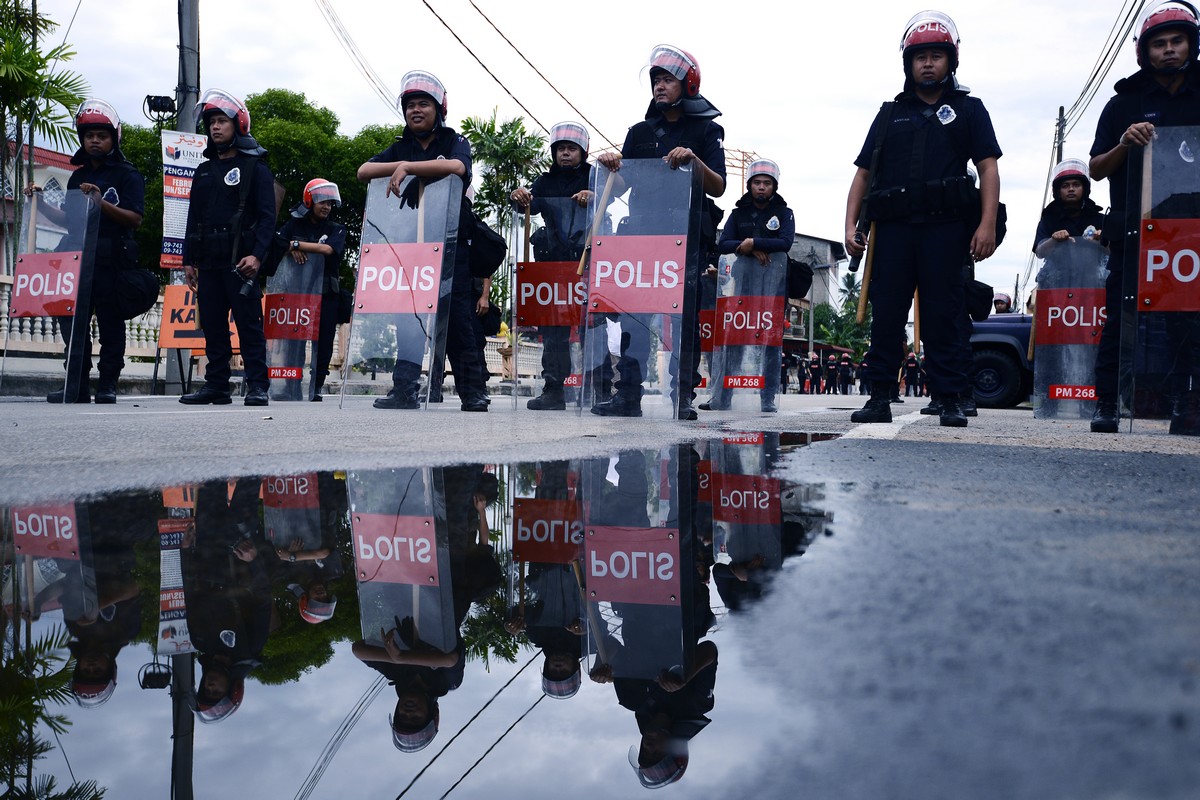 The National Security Council Bill will allow Prime Minister Datuk Seri Najib Razak to wield more power on national security. – The Malaysian Insider file pic, December 3, 2015. The National Security Council (NSC) Bill, which gives wide-ranging powers to the prime minister to declare a "security area" and order arrests without warrants, was passed at the policy stage in the Dewan Rakyat today.
The National Security Council Bill will allow Prime Minister Datuk Seri Najib Razak to wield more power on national security. – The Malaysian Insider file pic, December 3, 2015. The National Security Council (NSC) Bill, which gives wide-ranging powers to the prime minister to declare a "security area" and order arrests without warrants, was passed at the policy stage in the Dewan Rakyat today.
 A total of 107 MPs voted for the bill while 74 voted against it.
A total of 107 MPs voted for the bill while 74 voted against it.
The bill will now be debated at the committee stage and is expected to be passed before the house adjourns sine die tonight.
Earlier, Lim Guan Eng (DAP-Bagan) attempted to refer the bill to a select committee which was provided for under Standing Order 54 (2).
But this was rejected by Deputy Speaker Datuk Seri Ronald Kiandee on grounds that the motion should have been made before the vote was taken.
Debating the bill earlier, N.Surendran (PKR-Padang Serai) dubbed the passage of the bill in Parliament “legislation by ambush”, and questioned the repeated need for bills to be rushed through the august house.
He said among the worrying provisions in the bill was that there would be no limit to the area declared as a “security area”, no legal redress for abuse of power by security forces and no inquests into deaths in the “security area”.
Surendran said that laws such as these had been abused, citing the recent use of Security Offences (Special Measures) Act against those who criticised debt-ridden state fund 1Malaysia Development Bhd (1MDB).
“When we look at these laws, such as Pota, Sosma, Sedition Act, the people have been robbed of human rights.
“This law will lead the country to dictatorship,” he added.
Gobind Singh Deo (DAP-Puchong) said the law was unconstitutional and took away power from the Yang di-Pertuan Agong enshrined under Article 150 of the Federal Constitution to make a declaration of emergency.
He said while DAP supported all efforts to ensure the security of the country, huge sweeping powers cannot be given solely to the prime minister.
“We are asked to come here and give absolute power to the PM, what kind of law is this?
“It takes back the power given to the Yang di-Pertuan Agong and gives absolute power to one person,” he said.
When wrapping up the debate at the policy stage, Minister in the Prime Minister's Department Datuk Seri Shahidan Kassim said the bill aimed to give powers to the National Security Council, which only had administrative powers.
He said the intention was also to streamline powers of the various security forces in the country, including maritime, army and the police, adding that currently, army personnel did not have specific power to arrest.
Shahidan rejected the claim that the bill was unconstitutional and that it took power away from the king.
He also denied that the bill gave wide powers to the prime minister.
Shahidan added that the bill was approved by Cabinet in response to R.Sivarasa (PKR-Subang), who repeatedly asked if the bill had the approval of the executive. – December 3, 2015.

Comments
Please refrain from nicknames or comments of a racist, sexist, personal, vulgar or derogatory nature, or you may risk being blocked from commenting in our website. We encourage commenters to use their real names as their username. As comments are moderated, they may not appear immediately or even on the same day you posted them. We also reserve the right to delete off-topic comments